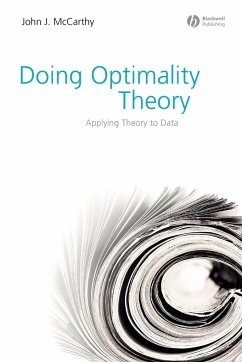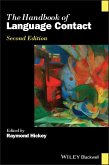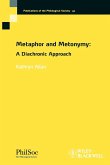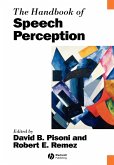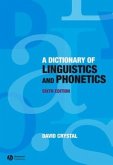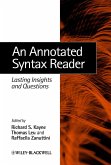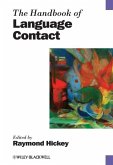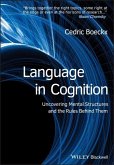Optimality Theory revolutionized the field of phonology and had a huge impact on linguistics in general when it was first proposed in 1993. In Doing Optimality Theory, one of the key proponents of the theory explains how to do analysis and research using this model.
Doing Optimality Theory brings together examples and practical, detailed advice for undergraduates and graduate students working in linguistics. Given that the basic premises of Optimality Theory are markedly different from other linguistic theories, this book presents the analytic techniques and new ways of thinking and theorizing that are required.
Explains how to do analysis and research using Optimality Theory (OT) - a branch of phonology that has revolutionized the field since its conception in 1993
Offers practical, in-depth advice for students and researchers in the field, presented in an engaging way
Features numerous examples, questions, and exercises throughout, all helping to illustrate the theory and summarize the core concepts of OT
Written by John J. McCarthy, one of the theory's leading proponents and an instrumental figure in the dissemination and use of OT today
An ideal guide through the intricacies of linguistic analysis and research for beginning researchers, and, by example, one which will lead the way to future developments in the field.
Doing Optimality Theory brings together examples and practical, detailed advice for undergraduates and graduate students working in linguistics. Given that the basic premises of Optimality Theory are markedly different from other linguistic theories, this book presents the analytic techniques and new ways of thinking and theorizing that are required.
Explains how to do analysis and research using Optimality Theory (OT) - a branch of phonology that has revolutionized the field since its conception in 1993
Offers practical, in-depth advice for students and researchers in the field, presented in an engaging way
Features numerous examples, questions, and exercises throughout, all helping to illustrate the theory and summarize the core concepts of OT
Written by John J. McCarthy, one of the theory's leading proponents and an instrumental figure in the dissemination and use of OT today
An ideal guide through the intricacies of linguistic analysis and research for beginning researchers, and, by example, one which will lead the way to future developments in the field.
"Built on deep experience in research and teaching, and drawing expertly on recent advances in handling the theory, McCarthy's volume conducts the reader closer than any previous text to the heart of the Optimality Theoretic enterprise. Lucidly grounded in the nuts-and-bolts of analytic technique, the book includes numerous exercises and questions that will stimulate, inspire, and provoke. Along the way the reader will encounter many sharp observations about matters ranging from theory-construction to writing up research results; these alone are worth the price of entry." Alan Prince, Rutgers University
"This book not only fills a major gap in the books on OT for beginners, but also offers wise advice for more experienced researchers. Moira Yip, University College London
"There are many introductions to OT as a theory, but none with hands-on training on the nitty-gritty details of how to actually do OT research. McCarthy's book, brimming with thought-provoking questions and problem sets, provides the guidance needed." Junko Ito, University of California Santa Cruz
"This book not only fills a major gap in the books on OT for beginners, but also offers wise advice for more experienced researchers. Moira Yip, University College London
"There are many introductions to OT as a theory, but none with hands-on training on the nitty-gritty details of how to actually do OT research. McCarthy's book, brimming with thought-provoking questions and problem sets, provides the guidance needed." Junko Ito, University of California Santa Cruz
"An intensely practical book, full of concrete problemsolving advice, which should be well-thumbed by those learning and working within OT." ( Journal of Linguistics , 2009)

